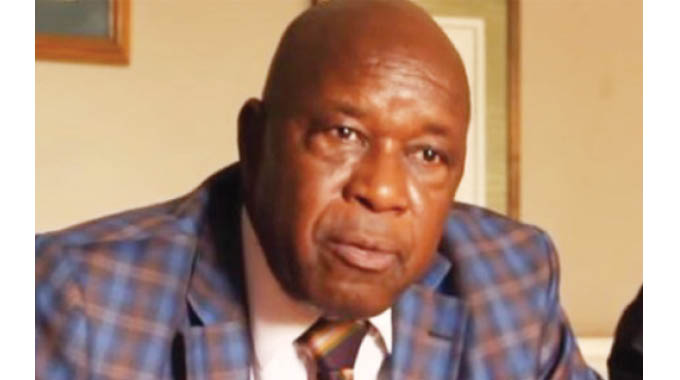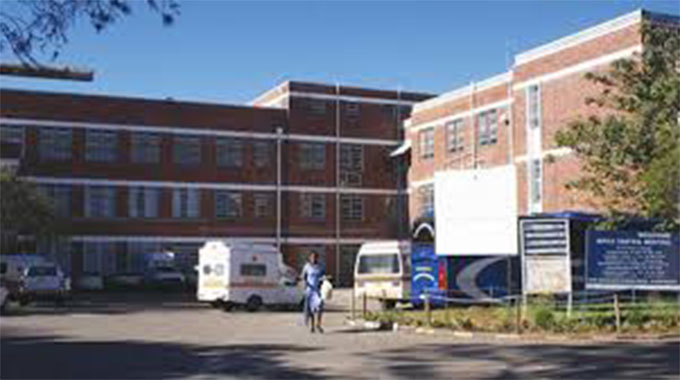Group of varsity students among first to join liberation struggle

Patrick Chitumba, Midlands Bureau Chief
A SPECIAL group of university students were among the early avalanche of patriotic youths that joined the fight for freedom and swelled the ranks of the Zanla and Zipra.
They include Ambassador Christopher Mutsvangwa, former Attorney-General Sobusa Gula Ndebele, Ambassador Willard Zororo Duri, Ambassador John Mayowe, paediatrician Dr Masimba Mwazha, Justice Paddington Garwe, Nicholas Muvingi, the late Joseph James and late judge Justice Sandra Mwamumka.
A majority from the mentioned freedom fighters abandoned studies at the then University of Rhodesia’s Faculty of Law in 1975 to join the liberation struggle.
The dean at the Faculty of Law was Professor Richard Christ, who may have doubled up as a spy for British intelligence. His wife Phillipa Berlyn died when a Viscount plane was shot down by Zipra forces in Kariba.
This was the highest number of African students ever selected to study in this specialised field which the racially skewed colonial education had hitherto preserved for whites.

Cde Sobusa Gula Ndebele
The advent of Mozambique’s independence on June 25, 1975 triggered a stampede of eager youths seeking military training across the border to Mozambique or Zambia to fight for the freedom of the country.
As Zimbabwe turns 40, Ambassador Mutsvangwa and Cde Gula Ndebele shared experiences of the struggle.
“I enrolled as a top A- level national student. I had full merit scholarship to cover my studies from the then colonial government of Rhodesia. I had come from St Augustine’s Tsambe and Kutama College, Makwiro. Our Law Faculty non-white enrolment of seven students was the highest ever under the racist educational system of Ian Smith’s Rhodesia. I joined the armed struggle with the late Willard ‘Hapana Zororo’ Duri, the late John ‘Robert Mandebvu’ Mayowe, Sobusa Martin Gula Ndebele and Dr Masimba ‘Mamvura’ Mwazha.
“Judge President George ‘Arafat’ Chiweshe, Justin ‘Top Ten’ Mupamhanga and the late Neville ‘Malcolm X Hoko’ Dembetembe joined us crossing into Mozambique soon after,” he said.
Ambassador Mutsvangwa said his group became the first occupants of Zhunda Camp outside of Chimoio — a military cantonment that had recently been vacated by the defeated Portuguese colonial fascist army.
“There was whole scale absconding by students and youths into Mozambique. The motivating drive to go to war was the realisation that a foreign power had conquered Zimbabwe and proceeded to transplant its offspring as our settler colonial rulers. The emergence and rise of post-World War II African nationalism rekindled a new political consciousness. Urban riots and rural sabotage of white farm holds. The implanting of a homegrown guerilla insurgency in the North East region by Chairman (Herbert) Chitepo and General Josiah Magama Tongogara had infused the populace with a new sense of military pride,” said Ambassador Mutsvangwa.
“Thus, the Frelimo victory ignited a new pride and assertiveness within Zimbabwe and beyond. The Soweto Uprising and subsequent massacres were emblematic of the new mood of defiance in the White minority ruled sub region. The sudden and rapid influx of recruits overwhelmed the capacity and pace of training and the supply of weapons by our allies and well-wishers. These were Frontline States Mozambique, Tanzania, Zambia, Botswana, Angola and distant Nigeria. Then there was the Africa Union, China, Cuba, Soviet Russia and then Socialist bloc and others.”
Ambassador Mutsvangwa said the positive was the no surrender spirit in recruits and military personnel.
“I’m particularly impressed by our sharp learning curve in mastering modern warfare. In a short five years we had closed the gap in combat and the ZANLA-ZIPRA allies were on the verge of military victory. The British imperial authorities were forced to negotiate,” he said.

Justice George Chiweshe
As the country turns 40, Ambassador Mutsvangwa said the Second Republic of President Mnangagwa has reset the economic trajectory of Zimbabwe adding that the last two years have seen wrenching and painful reforms to an economy that was in neglectful decay.
“This unavoidable pain is now poised to deliver economic growth prospects that will deliver a middle-income country and vault it to global level prosperity,” he said.
Cde Gula Ndebele said the war united Zimbabweans across every divide and caused gender emancipation.
He said they fought a people’s war that needed everyone’s support.
Cde Gula Ndebele went to Mzilikazi Primary School before enrolling at Lower Gweru Mission in Lower Gweru for his secondary education.
“I together with the like of Cde Mutsvangwa and Dr Mwazha abandoned school for the liberation struggle. It was a worthy cause as it brought together all the people across boundaries and tribes which we are unfortunately seeing now,” he said.
Cde Gula Ndebele said the military training was the enduring impact of ideological education and the nightly pungwes which moulded a confident, disciplined and well organised nation.
“A well nurtured, cultured freedom fighter was raised during the liberation struggle and we were excited and blessed to be associated with the good cause of fighting for the independence of the country. We fought against white colonial rule, we fought against tribalism, nepotism and we want to see that happening now.

“We are one people from Zambezi to Limpopo and we must do away with tribalism. We must do away with placing boundaries such as these names such as Matabeleland, Mashonaland. They threw away the real meaning of the spirit of Ubuntu/Unhu. We are one people and should be united for the socio-economic growth of our country,” he said.
Cde Gula Ndebele said they entered into Mozambique mainly because it was easy to walk into that country than crossing the Zambezi River into Zambia.
“As young people we were disgusted by the Smith rule which was also centred on divide and rule. They were lying about our history in schools painting our nationalists and heroes of the first Chimurenga war as villains yet they were heroes who fought against colonialism. We wanted total freedom, total empowerment. We managed to destabilise the system bringing about Lancaster House talks, the elections and the rule of the black people.
“I, however, feel we need to achieve more so that every Zimbabwean has access to all the basic needs and wants,” he said.








Comments